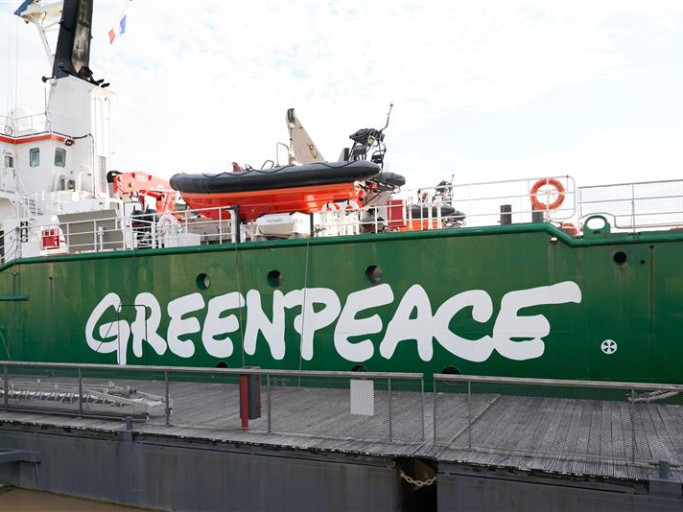Home / Blog / Green & Eco-Friendly / Are Custom Ballpoint Pens Bad for the Environment?
Are Custom Ballpoint Pens Bad for the Environment?
Date posted: 8th April 2024 in Green & Eco-Friendly
Last updated: 19th April 2024

In the vast landscape of promotional products, custom ballpoint pens have long been a staple. They are popular due to their reliability and cost-effectiveness, making them an attractive option for businesses looking to increase brand awareness. However, the environmental impact of these pens, especially plastic models, has become a growing concern. This blog explores whether ballpoint pens are indeed bad for the environment and discusses sustainable alternatives.
1. What Are Custom Ballpoint Pens?
Custom ballpoint pens are writing tools embossed or printed with a company's logo, contact information, or other branding elements. These pens serve as a popular choice in promotional marketing, effectively showcasing a company's identity and message. Incorporating personalized details not only boosts the attractiveness of the pens but also encourages their usage by recipients. As these pens are frequently used, they ensure continuous visibility of the company's brand to potential customers.
Statistical data reveals that promotional pens rank among the most kept and used advertising items, with 89% of consumers possessing at least one promotional pen. This significant retention rate shows in real-terms the long-term effectiveness of branded pens in maintaining brand awareness.
2. How Effective Are Pens in Advertising?
Statistics show that pens are incredibly effective as advertising tools. According to a study by the Advertising Specialty Institute (ASI), pens are among the most impactful promotional items, with a single pen generating up to 3,000 impressions throughout its lifetime. Moreover, pens are kept for an average of nine months by consumers, providing long-term exposure for the brand.
3. Who Uses Custom Ballpoint Pens?
Ballpoint pens are an important tool in promotional strategies across various business sectors. Their functionality coupled with customization options make them an ideal option for advertising within numerous industries.
- Education: Educational institutions frequently utilize custom ballpoint pens featuring their logos or mascots. These pens serve more than a functional role; they embody the school’s identity. Distributed during orientations, open houses, or as rewards, they extend the school's presence from the classroom to homes and workplaces.
- Healthcare: Custom ballpoint pens are essential in healthcare settings. Available at nurses' stations, examination rooms, and reception areas, these pens are used by staff and often taken by patients and visitors, broadening the facility’s influence. They also support health awareness campaigns when printed with wellness messages or information about healthcare services.
- Big Business: Corporate offices heavily invest in custom pens, which are practical and foster brand loyalty among employees. At conferences or trade shows, these pens are handed out as promotional items, serving as ongoing reminders of the company’s services whenever used.
- Hospitality: In the hospitality sector, custom ballpoint pens are valuable branding tools. Found in hotel rooms, at check-in desks, or provided with restaurant bills, these pens subtly enhance guest experiences. They often travel home with guests, reminding them of their visit and encouraging return visits.
Each promotional ballpoint pen holds the potential to travel far beyond its initial point of distribution, acting as a mini billboard in the pocket of its user. They are an affordable yet powerful marketing tool, providing ongoing exposure as they are used and passed along from person to person. In this way, ballpoint pens become more than just a writing instrument; they are a potent vehicle for brand promotion, networking, and loyalty-building across a multitude of sectors.
4. Environmental Impact of Custom Ballpoint Pens
Single-use ballpoint pens, especially those crafted from plastic materials, present environmental dilemmas. They contribute significantly to household waste; it's estimated that every year, vast numbers of these disposable pens find their way into landfills. The scale of the problem is highlighted by statistics indicating that in the United States alone, over 1.6 billion pens are discarded annually. These pens can linger in landfills for generations, with some components taking over a century to break down, posing a threat to ecosystems as they slowly decompose.
The manufacturing process of plastic ballpoint pens also has considerable environmental implications due to its reliance on petroleum, an exhaustible resource. The extraction and refinement of petroleum for the production of plastics not only deplete this natural resource but also lead to substantial greenhouse gas emissions. This extraction process and subsequent manufacturing contribute to the broader issue of environmental degradation, including air pollution and habitat destruction.
The environmental footprint of these types of pens is exacerbated by their short lifespan and the throwaway culture that drives their use. As society becomes more aware of environmental concerns, the need to address the life cycle impact of seemingly inconsequential items like custom plastic ballpoint pens becomes increasingly critical. Sustainable alternatives and recycling initiatives are becoming more vital to reduce the environmental toll of these everyday objects.
5. Can Plastic Pens Be Recycled?
Recycling custom plastic pens is complex due to the mix of materials used, such as plastic, ink, and metal components. While it is technically possible, the process is not straightforward, and most municipal recycling programs do not accept pens. This makes the disposal and recycling of plastic pens a significant issue.
6. Benefits of Eco-Friendly Custom Pens
Opting for eco-friendly custom pens is a strategic move that can profoundly influence a company's brand reputation by demonstrating a solid commitment to environmental conservation. These pens are crafted from a variety of sustainable resources.
Biodegradable materials are selected to ensure that the pens can break down naturally over time, thus contributing less to landfill waste. Recycled materials are another popular choice; using pre-consumer or post-consumer waste not only gives a second life to plastics and metals but also reduces the demand for new raw materials. Alternatively, pens made from renewable resources such as sustainably sourced wood or bamboo underscore a connection to natural elements and an eco-conscious lifecycle.
When a business chooses to brand itself with such eco-friendly products, it sends a clear message about its values. The reduced environmental impact is twofold: it minimizes ongoing waste and ensures the conservation of resources. Moreover, such a stance is likely to resonate with a growing segment of the consumer base that prioritizes sustainability. This alignment can bolster a positive brand perception, painting the company as forward-thinking, responsible, and ethically oriented. In a marketplace where consumers are increasingly making choices based on company ethics and environmental impact, integrating eco-friendly custom pens into a company’s branding strategy can attract customers who share these values, potentially leading to increased loyalty and advocacy. This decision not only benefits the planet but can also be a savvy marketing move that differentiates a company in a competitive environment.
To summarize benefits of using eco-friendly ballpoints pens include:
- Reduced Environmental Impact: They minimize waste and use renewable resources.
- Positive Brand Perception: Companies using eco-friendly pens are viewed as responsible and ethical, which can attract like-minded customers.
7. Metal and Steel Pens: Are They Greener?
The environmental implications of choosing metal or steel pens over plastic ones present a complex picture. On one hand, their robustness and the option to refill them suggest a reduction in waste generation. A single custom metal pen could, in principle, replace dozens of plastic pens over its lifetime, suggesting a favorable comparison. However, this apparent advantage is somewhat offset by the considerable resources and energy required to manufacture them. The process of extracting and refining metals necessary for these pens often leads to significant environmental emissions.
Recycling, while a theoretically sound solution for metal objects, is complicated in the case of pens. This arises from the fact that pens are typically composed of multiple materials which are not easily separated for recycling.
Therefore, determining the 'greenness' of metal and steel pens requires a comprehensive analysis of their entire life cycle—from the resource-heavy production phase through to the challenges posed at the recycling stage. Despite their potential for reuse, the broader environmental costs associated with their life cycle must be critically evaluated.
Therefore, while metal or steel pens are more durable than plastic pens and can be refilled, thus potentially reducing waste, they also have downsides:
- Resource Intensive: The production of metal pens is energy-intensive and involves mining and refining metals, which have environmental impacts of their own.
- Recycling Challenges: Although metal can generally be recycled, the mixed materials in pens make the process less straightforward.
Despite this, custom metal and steel pens could be considered greener than plastic pens because they last longer and you can refill them, meaning you don't have to throw them away as often as you would with plastic pens. This can lead to using fewer pens over time, which is better for the environment.
In Summary
While custom ballpoint pens are highly effective as promotional tools, their environmental impact cannot be overlooked. Businesses aiming to align with modern values of sustainability should consider switching to eco-friendly alternatives. By doing so, they not only reduce their ecological footprint but also bolster their reputation as an environmentally conscious brand. By making informed choices about the promotional products they use, businesses can play a crucial role in promoting sustainability while still effectively marketing their brands.
References:
- Advertising Specialty Institute (ASI). Promotional Products Effectiveness Statistics. Retrieved from ASI.
- Gitnux. Promotional Products Statistics. Retrieved from Gitnux.
- Earth911. (2021). Sustainable Pens and Pencils Infographic. Retrieved from Earth 911.
- Green America. Give your school supplies a second life. Retrieved from Green America.

Strengthen your brand perception with promotional products
Chat online or call us today on 1800-586-1615
More Articles

Attract Eco-Conscious Customers with Branded Reusable Water Bottles
29th November 2018 in Green & Eco-Friendly

From Canvas to Organic Cotton: Exploring Fabric Choices for Custom Tote Bags
25th October 2023 in Green & Eco-Friendly

The impact we are having
24th February 2020 in Green & Eco-Friendly

Greenpeace Day & Environmentally Friendly Promotions
15th September 2022 in Green & Eco-Friendly
